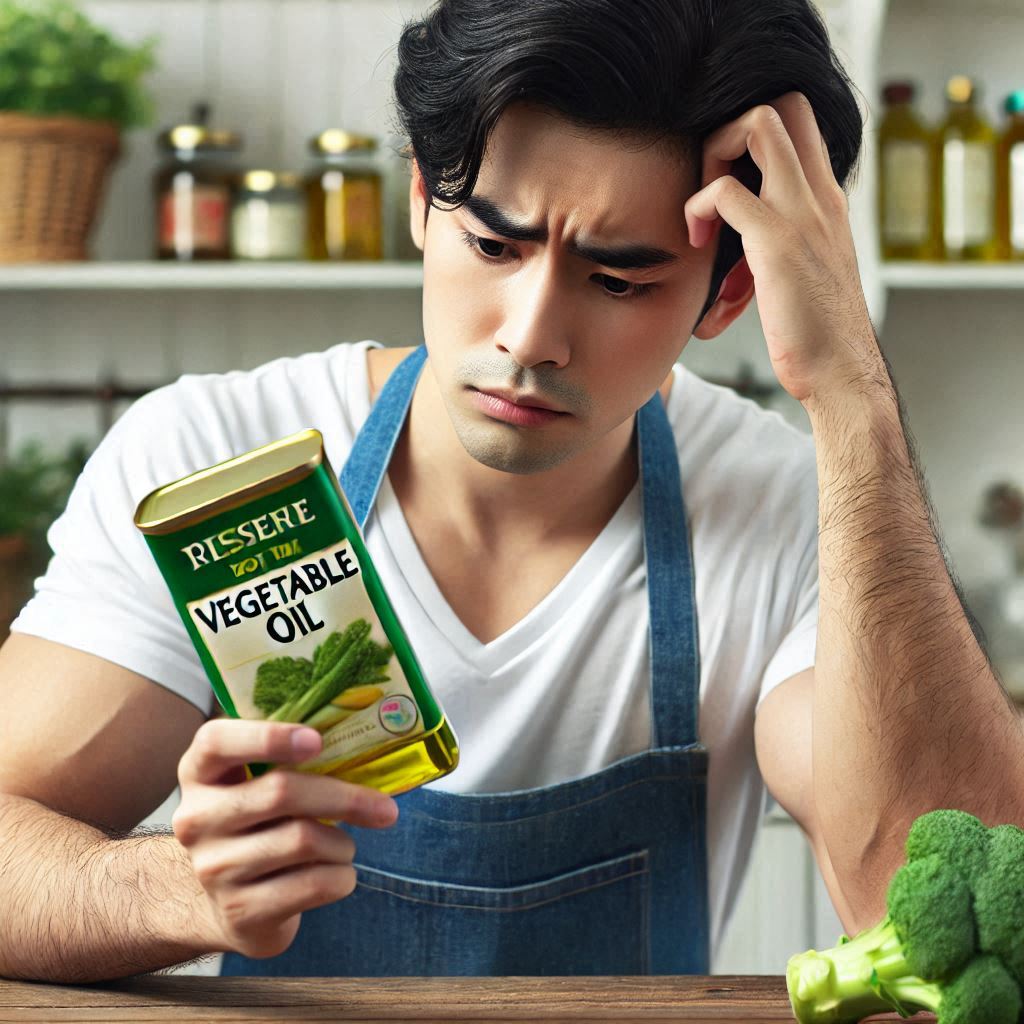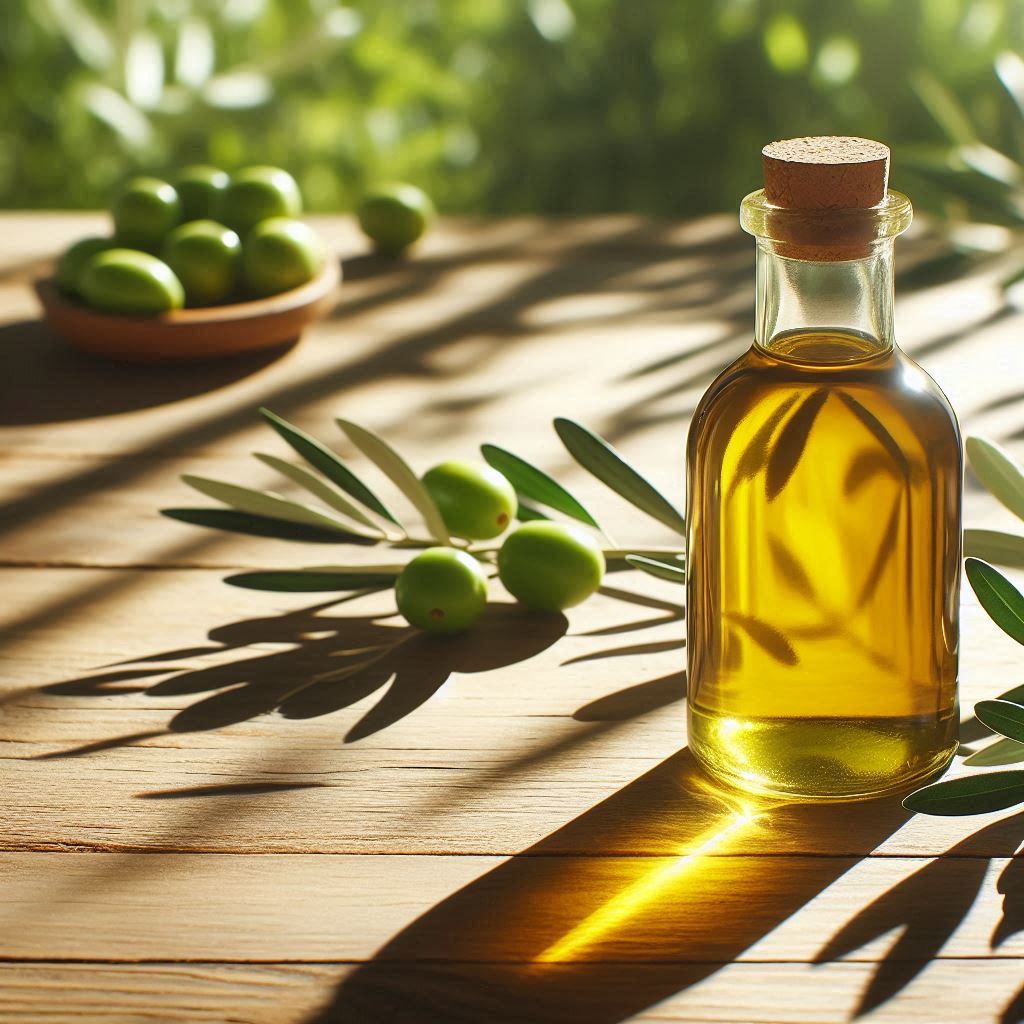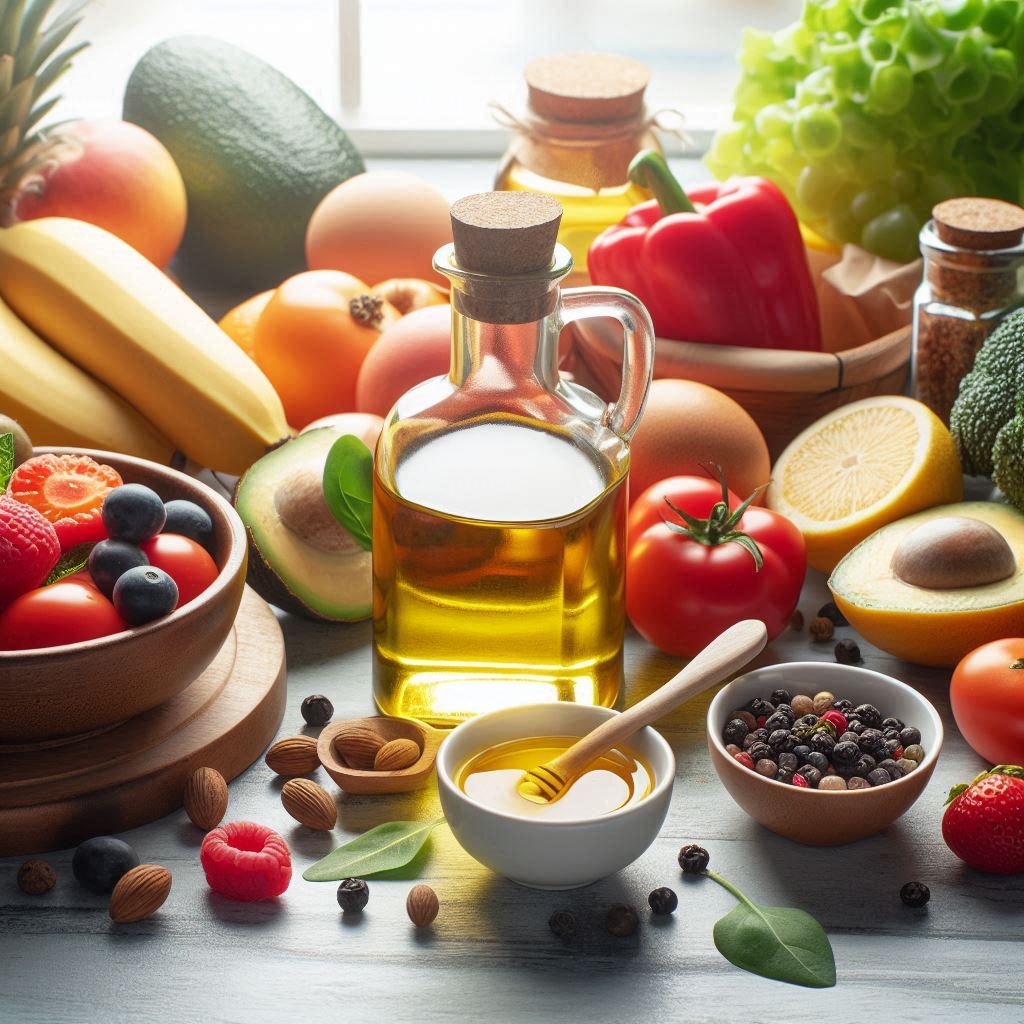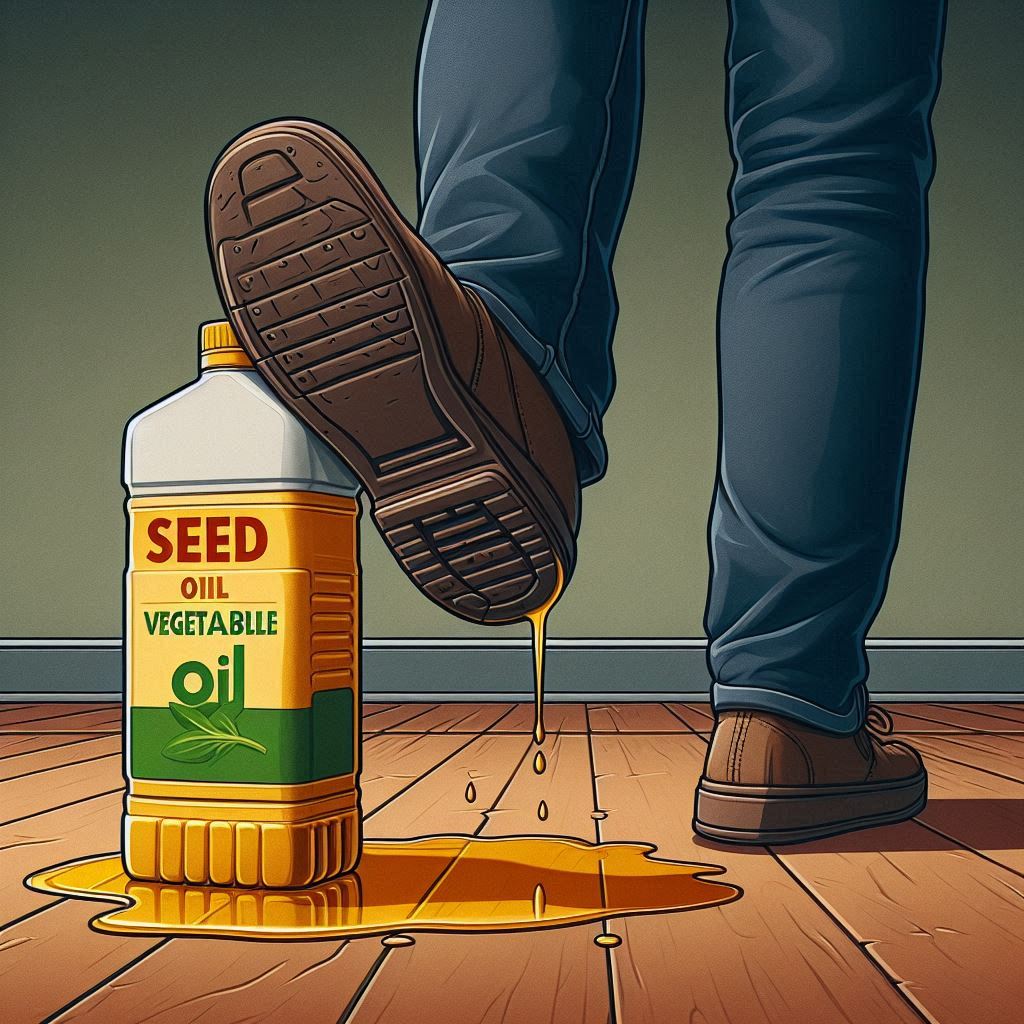Why am I the BIGGEST HATER of seed oils?

Full Disclosure: This post contains affiliate links. If you make a purchase through these links, I may earn a commission that helps me hate on seed oils at no extra cost to you!
What’s with all the seed oil hate anyway?
Seed oils didn’t just pop up overnight. They have a backstory that connects to global changes in industrialization and commercialization, starting in the late 19th century. When factories began processing these oils on a large scale, we saw them sneaking into everyday products like margarine and salad dressings.
Factories made a big leap during the industrial revolution, and seed oils became cost-effective alternatives for businesses eager to cut down on costs. This shift wasn’t just about the oils—it reflected an entire economic strategy. Large-scale processing meant that oils like canola, soybean, and vegetable could be produced cheaply and in massive quantities, making them available for nearly everyone.
However, the intention perhaps wasn’t to compromise health. It was mainly about efficiency and extending shelf lives. Ads in the mid-20th century pushed the narrative of new, modern cooking oils being a step forward from traditional fats. People bought into it—hook, line, and sinker—believing that these oils were the healthier choice.
Yet, while the financial benefits seemed apparent, the long-term health implications weren’t part of that equation. With the focus on industrial production and cheaper commodities, this created a ripple effect where seed oils became a staple in pantries everywhere, overshadowing their nutritional deficits. It’s crucial to question how economic incentives and health priorities ventured apart, leading us down a path that’s become a hot topic in dietary conversations today.
Decoding the Health Risks of Seed Oils

Seed oils, though convenient and economical, present significant health concerns. These oils are packed with omega-6 fatty acids, which have been linked to chronic inflammation. While our bodies do need a certain amount of omega-6s, a surplus, especially when not balanced with omega-3s, can throw our systems out of whack, leading to problems like heart disease and metabolic disorders.
When it comes to cooking with seed oils, things get even trickier. When these oils are exposed to high heat, they can oxidize and produce harmful byproducts.
These byproducts have been associated with oxidative stress and cellular damage, key players in the development of chronic diseases. Some studies even trace links between excessive seed oil consumption and increased risks of issues like obesity and diabetes.
These results conclude that consumption of thermally oxidized mix vegetable oils for longer duration can impair the liver function and destroy its histological structure significantly through fat accumulation and oxidative stress both in high as well as low doses.
Health experts have raised concerns, urging people to be cautious with their intake. Despite being marketed as healthy alternatives for cooking and baking, the reality of their nutrient profile suggests otherwise. Understanding these risks is crucial in making informed choices that prioritize long-term well-being over short-term convenience. By being proactive and well-informed, we can adjust our diets to better support a balanced, healthier lifestyle.
Olive and Avocado Oils: The Healthier Exceptions

While seed oils often get a bad rap, it’s important to note that not all oils are created equal. Olive and avocado oils stand out as notable exceptions. Rich in monounsaturated fats, these oils offer a nutritional profile that supports heart health and reduces inflammation.
Both olive and avocado oils boast high levels of antioxidants, which play a crucial role in fighting oxidative stress and protecting cells from damage. This antioxidative property means they can offer anti-inflammatory benefits, setting them apart from their seed oil counterparts.
The Mediterranean diet, which heavily features olive oil, has been associated with numerous health benefits, including increased lifespan and reduced risk of chronic diseases. It’s no coincidence that this diet has been praised for promoting longevity and overall well-being.
Comparing these oils with commonly used seed oils reveals significant differences. Olive and avocado oils are less prone to oxidation, thus maintaining their healthful properties even during cooking. This makes them a much safer choice for everyday culinary use.
By choosing these oils, individuals can enjoy the benefits of healthy fats without the health risks linked to manufactured seed oils. Incorporating them into your diet can contribute significantly to achieving a balanced, nutritious lifestyle.
Other Fats That Support Optimal Health: Exploring Alternatives

When it comes to cooking, a return to traditional fats can offer both flavor and nutritional benefits. Let’s talk about some healthier alternatives that are gaining renewed appreciation.
Beef tallow, for starters, is one age-old fat that’s reclaiming its spot in many kitchens. It’s known for its rich flavor and high smoke point, making it a great choice for high-heat cooking. Plus, it’s full of stable saturated fats, which are less likely to oxidize compared to polyunsaturated fats found in seed oils. This is my personal favorite for a great sear on steaks!
Butter and ghee also make excellent substitutes. Besides imparting a delightful taste to dishes, they contain beneficial fatty acids that support health. Ghee, with its lactose and casein removed, is especially suitable for those with dairy sensitivities. Moreover, both butter and ghee are versatile, fitting well into a variety of culinary applications, from baking to frying.
In short, use butter for emulsion in low heat and ghee for cooking with high heat since it won’t burn.
What makes these fats stand out is their nutritional profiles, which include essential fat-soluble vitamins like A, D, and K2. Unlike many seed oils, these traditional fats have been part of human diets for centuries, respected for their health-supporting qualities.
Another advantage these fats offer is sustainability. Using every part of the animal, as in rendering tallow, reduces waste and honors traditional practices. Opting for such fats can contribute to a more sustainable food system, promoting not just personal health but environmental consciousness as well.
Incorporating Healthier Oils into Everyday Diets

Switching from seed oils to more beneficial options can seem daunting, but it’s easier than you might think. Start by replacing these oils in your daily cooking. Use olive oil for salad dressings and gentle sautéing, while reserving avocado oil and tallow for baking and higher temperature cooking due to its high smoke point.
Planning meals around these fats can bring both taste and health benefits. Try experimenting with recipes that traditionally called for seed oils but would be equally, if not more, delicious with these alternatives. A simple switch can transform a meal both nutritionally and flavor-wise.
When it comes to cooking safety, smoke points matter. Knowing the right oil for the right cooking method is key to maintaining the integrity of your food, minimizing the risk of producing harmful compounds. This awareness is a significant step towards healthier cooking practices.
Finding quality products is essential for this transition. Look for cold-pressed or extra virgin options when purchasing olive or avocado oil. For beef tallow, butter, and ghee, sourcing from grass-fed or pasture-raised animals ensures you’re getting more nutritious and sustainable products without artificial additives.
Crafting a Whole Balanced Diet: Final Thoughts & Recommendations

It’s crucial to look at dietary habits holistically and individually. Incorporating a variety of whole foods, including whole animal parts, fresh vegetables, fruits, lean proteins, and minimal whole grains, works wonders in promoting overall health. These foods contribute essential nutrients that should complement the healthier oils you’re now embracing.
Making informed, mindful decisions about what you eat empowers you to align your diet closer to how our ancestors ate, reducing reliance on processed foods, which tie into obesity and other modern health issues.
Returning to traditional cooking practices not only supports individual health but also fosters a sense of connection with a more sustainable way of living. Embracing fats like olive oil, ghee, or beef tallow is a step towards reclaiming dietary habits that are both nutritious and satisfying.
Balanced intake across various food types ensures that you enjoy the full spectrum of nutrients without over-relying on any single aspect of your diet. Seek balance, be mindful, and allow your food choices to thrive in providing nourishment, joy, and connection.
Thank you for your time and DOWN WITH SEED OILS!




we often overlook can have such a big impact on our health. I remember when I first started swapping out seed oils for healthier options like olive oil and avocado oil. The difference was incredible—not just in taste, but in how I felt overall.Cooking with these oils made my meals more flavorful, and I felt more energized afterward. It’s funny how small changes can lead to such positive results.
Your insights really resonate with me, and it’s a reminder of how important it is to be mindful about what we put into our bodies.Thanks for shedding light on this topic! It’s always inspiring to connect with others who care about healthy living. Keep up the great work!
That is awesome to hear you had a similar experience, thank you for sharing!
It’s in a way reassuring to know all these fats that taste delicious actually are healthy for you. The body knows instinctively!
Haha I love this site!!! Keep up the good fight against seed oils my man. Just started using tallow and couldnt believe the difference
I appreciate the clear explanations and scientific backing provided even with the jokes cause I never really got what the big deal was about them. i’ll definitely be more mindful about the oils I use going forward. great work!
That is AWESOME to hear Anne – thank you and enjoy! I have some other articles with more info on alternatives if you would like.